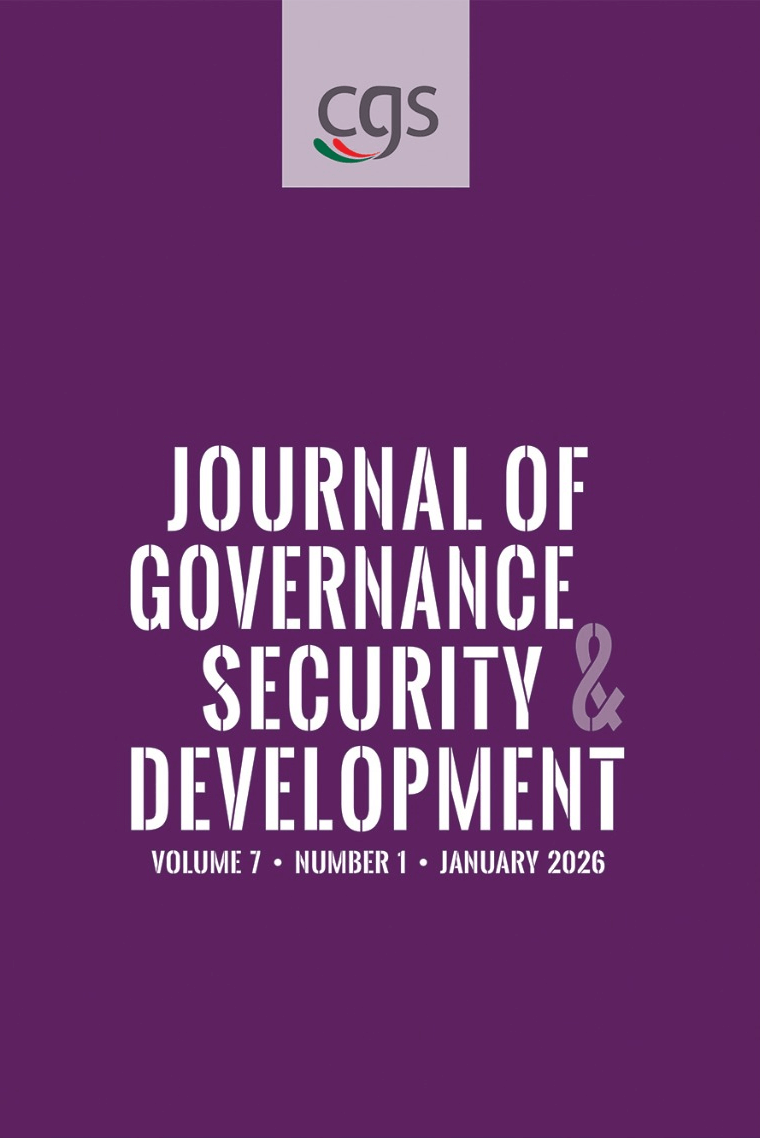Journal Reference
Volume 1 | Number 1
Online Version: ISSN No: 2709-0590
Print Version: ISSN No: 2708-2490
Price: BDT: 750.00, USD: 25.00
Publish Date: 01, July 2020
Article:
Ali Riaz
Reference
Ahmad, A. (1985). ‘Class, Nation and State: Intermediate Classes in Peripheral Societies’ in D. L. Johnson ed., Middle Classes in Dependent Societies, London: Sage.
Aljazeera (2019). ‘Is Bangladesh a one-party state? https://www.aljazeera.com/programmes/headtohead/2019/02/ gowher-rizvi-bangladesh-party-state-190227124251797.html;
Bangkok Post (2019). ‘Bangladesh returns to 1-party state’, https://www.bangkokpost.com/opinion/opinion/1604438/ bangladesh-returns-to-1-party-state.
BRAC (2014). The State of Governance Bangladesh 2013: Democracy Party Politics, BRAC Institute of Governance and Development, Dhaka: BRAC University.
Coppedge, M. (1994). Strong Parties and Lame Ducks. Stanford, CA: Stanford University Press.
DFID (2010). Building Peaceful States and Societies. DFID Practice Paper. London: Department for International Development.
Economist, The (2018). ‘Bangladesh’s slide towards authoritarianism is accelerating.’
https://www.economist.com/asia/2018/10/04/bangladeshs-slide -towards-authoritarianism-is-accelerating
Gaddis, J. (1986). ‘The long peace: Elements of stability in the postwar international system.’ International Security 10(4): 99-142.
Gramsci, A. (1971). Selections from Prison Notebooks. New York: International General.
Gramsci, A. (1979). Selections from Political Writings 1921-26. Translated and edited by Q. Hoare. London: Lawrence and Wishart.
Hannon, J. (1967). ‘A political settlement for Vietnam: The 1954 Geneva Conference and its current implications’ Virginia Journal of International Law, 8(4): 4-93.
Hasan, M. (2013). ‘The political settlement in a limited access order: The case of Bangladesh’. ESID Working Paper No. 23. Manchester: University of Manchester.
Higley, J. and M. Burton (1998). ‘Elite Settlements and the Taming of Politics,’ Government and Opposition 33 (1): 98-115.
Ingram, S. (2014). ‘Political settlements: The history of an idea in policy and theory,’ SSGM Discussion Paper 2014/15, Canberra: College of Asia and the Pacific, Australian National university, available at http://ips.cap.anu.edu.au/sites/default/files/DP2014-5-Ingram-ONLINE.pdf (accessed 10 July 2016).
Islam, M.M. (2013). ‘The toxic politics of Bangladesh: A bipolar competitive neopatrimonial state?’ Asian Journal of Political Science, 21 (2): 148-168.
Kalecki, M. (1976). Essays on Developing Economics, Hancock: Harvester Press.
Khan, M. (2010). ‘Political Settlement and the Governance of Growth-Enhancing Institutions’, July. http://eprints.soas.ac.uk/ 9968/1/Political_Settlements_internet.pdf
Khan, M. (2012). ‘The political economy of inclusive growth’ in L. de Mello and M. A. Dutz eds., Promoting Inclusive Growth: Challenges and Policie., Paris: OECD Publishing, pp. 15-54.
Kochanek, S.A. (1996). ‘The rise of interest politics in Bangladesh,’ Asian Survey, 36 (7): 704-722.
Kugelman, M. (2019). ‘A disputed election and a dangerous new era for Bangladesh's politics’, CNN. https://www.cnn.com/2019/ 01/01/opinions/bangladesh-election-oped-intl/index.html
Liton, S. (2015). ‘Business factor in our politics’, The Daily Star, 14 October. http://www.thedailystar.net/frontpage/business-factorour-politics-156688
Macchaivelli, N. (1999). The Prince. London: Penguin, [1516].
Melling, J. (1991). ‘Industrial capitalism and the welfare of the state: The role of employers in the comparative development of the welfare state: a review of recent research,’ Sociology 91(2): 219-39.
Menocal, A.R. (2015). Inclusive Political Settlements: Evidence, Gaps and Challenges of Institutional Transformation. Birmingham, UK: International Development Department, University of Birmingham.
New York Times (2019). Bangladesh’s Farcial Vote, New York Times, 14 January. https://www.nytimes.com/2019/01/14/ opinion/editorials/bangladesh-election-sheikh-hasina.html.
OECD (2009). ‘Room Document 3: Framing paper on political settlements in peacebuilding and statebuilding.’ Quoted in Parks, T. ‘Political Settlements: Implications for International Development Policy and Practice,’ Asia Foundation Occasional Paper No. 2, New York: Asia Foundation. OECD (2011). Supporting Statebuilding in Situations of Conflict and Fragility: Policy Guidance. DAC Guidelines and Reference Series.
OECD Publishing. Parks, T. (2010). ‘Political Settlements: Implications for International Development Policy and Practice,’ Asia Foundation Occasional paper no. 2, July 201, New York: Asia Foundation, 2010, p. 12.
Raj, K. N. (1973). ‘The Politics and Economics of Intermediate Regimes,’ Economic and Political Weekly, 8:27.
Riaz, A. (2005). Unfolding State: The Transformation of Bangladesh, Ontario, Canada: de Sitters Publications.
Riaz, A. (2010) ‘Bangladesh: A “weak state” with multiple security challenges’ in T. V. Paul (ed.), South Asia’ s Weak States: Understanding the Regional Insecurity Predicament, Stanford, CA: Stanford University Press, pp. 241-264.
Riaz, A. (2014). ‘A crisis of democracy in Bangladesh,’ Current History, 113 (762): 150-156.
Riaz, A. (2019). Voting in Hybrid Regime: Explaining the 2018 Bangladeshi Election. New York/Singapore: Palgrave Macmillan
Sobhan, R. and M. Ahmad (1980). Public Enterprises in an Intermediate Regime: A Study in the Political Economy of Bangladesh, Dhaka: BIDS.
STATFOR (2016). ‘Bangladesh's descent into authoritarianism.’ https://worldview.stratfor.com/article/bangladeshs-descent-auth oritarianism.


